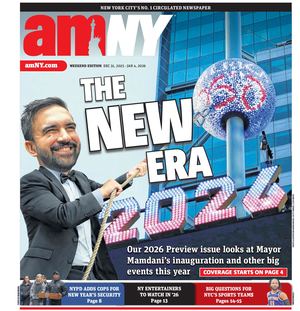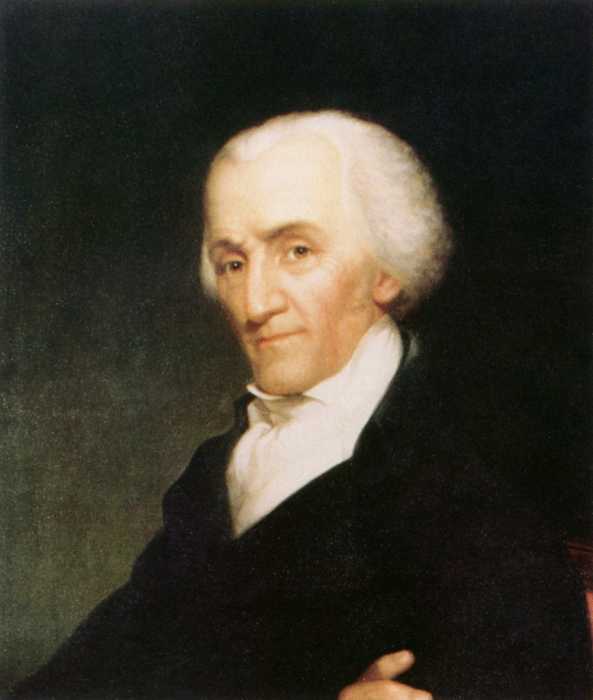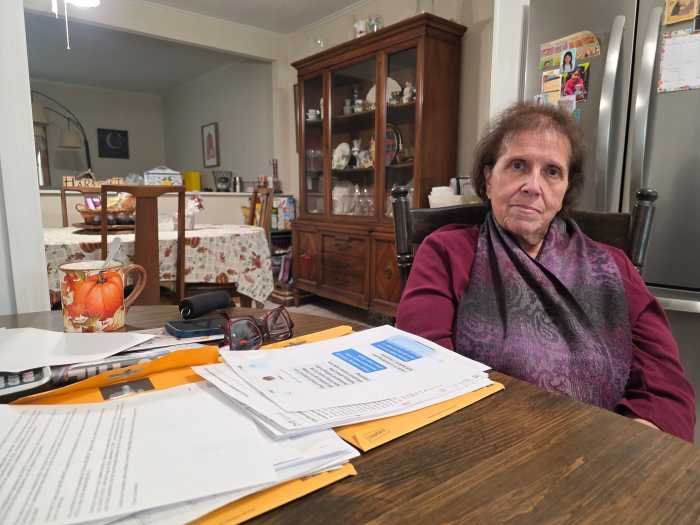
Liuba Grechen Shirley has a faint scar on her right wrist that she uses to tell an engaging story about her brand of politics. She says she got the scar at age 3, during a period when her mother participated in the campaign to close the Shoreham nuclear power plant on Long Island. When Grechen Shirley overheard that part of the campaign had been successful, she says she excitedly ran to tell her mother and accidentally put her hand through a glass door.
Now she has the scar, and she’s running an outsider, activist campaign for the Democratic nomination to take on Rep. Peter King, a Republican, whose Long Island district covers portions of Nassau and Suffolk Counties around 40 miles east of Manhattan.
Grechen Shirley is a textbook example of what might be called the blue-wave hopefuls, a generation of candidates moved to run by President Donald Trump’s 2016 win. She once worked in international development and as a consultant, but with the help of the Indivisible online guide she started a civic group, New York’s 2nd District Democrats.
“I just kept posting action alerts and that is what kind of got me through the first months of Donald Trump’s presidency,” she says.
Some of those actions targeted King, a 13-term mainstay of Long Island politics who did not originally support Trump but has become a big booster. Grechen Shirley says that after protesting at King’s office about his support of Trump’s first travel ban, she and other activists met with King and asked him to hold a real town hall. He, like other Republicans after Trump’s election, didn’t like the idea. “He told me it would diminish democracy,” Grechen Shirley remembers — a comment he would repeat elsewhere. This is the origin story for her run.
Parts of Grechen Shirley’s campaign make it clear why the much-heralded blue-wave hopefuls think something big is coming. She has quickly become a good fundraiser, in the first quarter of this year outraising her main primary challenger, Suffolk County legislative leader DuWayne Gregory, by more than two to one. She has appeared at events in New York City and capitalized on her NYC connections to draw donations and amped-up volunteers out to Long Island via the LIRR. (She’s a Long Island native but attended NYU and previously lived in the city — she met her husband when he responded to her Craigslist ad for a room in her apartment.) She campaigns door to door in sandals with Band-Aids protecting her heels, talking to North Babylon Democrats tired of King standing with Trump. And she has drawn national attention for successfully lobbying the Federal Election Commission to allow her to pay for child care with campaign funds, a comparative rarity and an opportunity to remind people of the uphill struggles female candidates like Grechen Shirley often face.
But there are also signs of the difficulties challengers face during these midterms, difficulties that come from both inside and outside the Democratic Party. In the June 26 primary, Grechen Shirley will first face Gregory, the presiding officer of the Suffolk County Legislature and a locally powerful politician. Gregory has the personal backing of Rich Schaffer, the Suffolk County Democratic Party chairman, with whom Grechen Shirley has repeatedly tussled, including in a previous attempt to run for a Babylon Town Board seat.
Beyond county politics, Grechen Shirley hasn’t always abided by area Democratic political norms, which include acknowledging that incremental political wins might come from Republicans, too.
When King opposed the Senate version of Trump’s health care legislation, the union-backed Healthcare Education Project took out an ad in Newsday praising his position. Grechen Shirley in turn wrote a blistering post saying she was “insulted” by the union group’s “misleading advertisement” given King’s earlier vote for the legislation in the House.
She has gotten a flurry of endorsements from new progressive groups like Our Revolution, the Bernie Sanders descendant. But she didn’t win the support of the Working Families Party, New York’s established progressive voice. That went to Gregory.
There don’t seem to be many policy differences between the two Democrats. When asked, Grechen Shirley points to her loud advocacy for universal health care. The thin policy section on Gregory’s campaign website does not include that issue. Largely, the choice seems to be between a longtime Democratic politician who is rallied around by the party faithful and a new face for the Trump era. It’s a question of style and strategy, contemplated by voters and party powerbrokers as we head into midterm election season. As to which style and strategy and whose endorsements mean most in this charged political environment? “We’ll have to wait and see,” Grechen Shirley says.







































